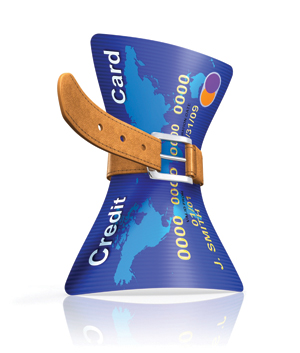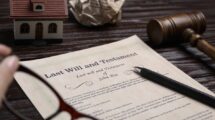Debt and retirement don’t mix

Are you looking forward to leaving the hustle and bustle when you turn 65? Some people actually resent the idea of having to retire because they really love working. It makes them feel vibrant, engaged and valued. Others would prefer to put it off until they’re “forced out” because they just aren’t financially ready. Some haven’t saved enough, others are still paying off debt and then in some cases it’s both, which is a big concern.
According to Statistics Canada’s “Retiring with Debt” publication, one in three retirees have some form of debt and that’s equally true for couples and people living alone. This debt can take different forms: loans, credit card debt, lines of credit, etc. But the good news is — if that’s how you want to look at it —that many retirees owe less than Canadian workers aged 55 and up. Their median debt is $19,000, compared to $40,000 for workers.
Another recent survey indicated that only 24% of Canadians are currently debt free, which is the best position to be in when you retire. The retirement planning experts from Desjardins Insurance particularly support this view because planning to work into your 70s and 80s is unrealistic. With the right plan, they suggest it’s possible to clean up your financial act and retire comfortably — on your terms. Remember, even if you weren’t able to adopt the best money managing skills throughout your working life, it’s still possible to make positive changes before you retire.
Start by taking a closer look at your current financial situation. Carefully review your current budget: exactly what is coming in and what’s going out. Next, calculate your total debt. There are two types of debt: debt that grows your assets (e.g. a mortgage) and debt that diminishes your assets, like:
• Credit cards
• Lines of credit
• Bills (Utilities, Taxes, etc.)
• Car payments
• Investment loans
• Student loans
• Mortgages
Now focus on paying off these asset-reducing debts, starting with the one with the highest interest rates. Once you’ve managed to pay these off, you might want to reduce the amortization period for your mortgage by increasing your payment amounts, payment frequency (e.g. weekly rather than monthly) or by making a prepayment.
Once you’ve paid off your liabilities, look into what your cash flow will be during retirement. Other than your RSP and perhaps a company pension, what income can you expect from the government? You can find this information by accessing your Revenue Canada account on the CRA website. Once you have a better picture of what you currently have and what you can expect during retirement, sit down with your financial advisor for tips on how to top up your retirement savings.
For more information about your retirement plan and how to find a retirement expert, visit the “Thinking about your retirement” section on Desjardins Insurance’s website at www.desjardinslifeinsurance.com.
www.newscanada.com






